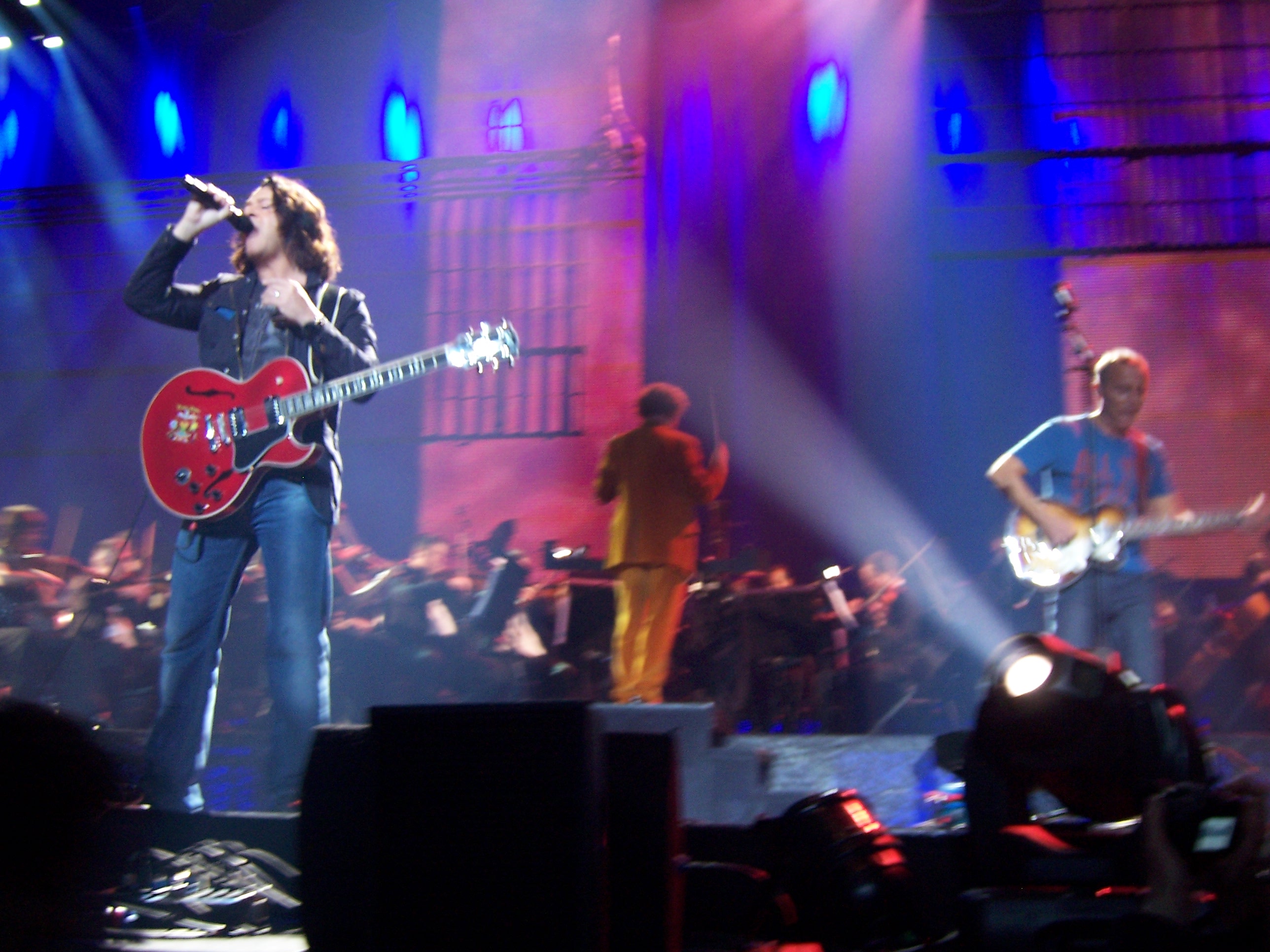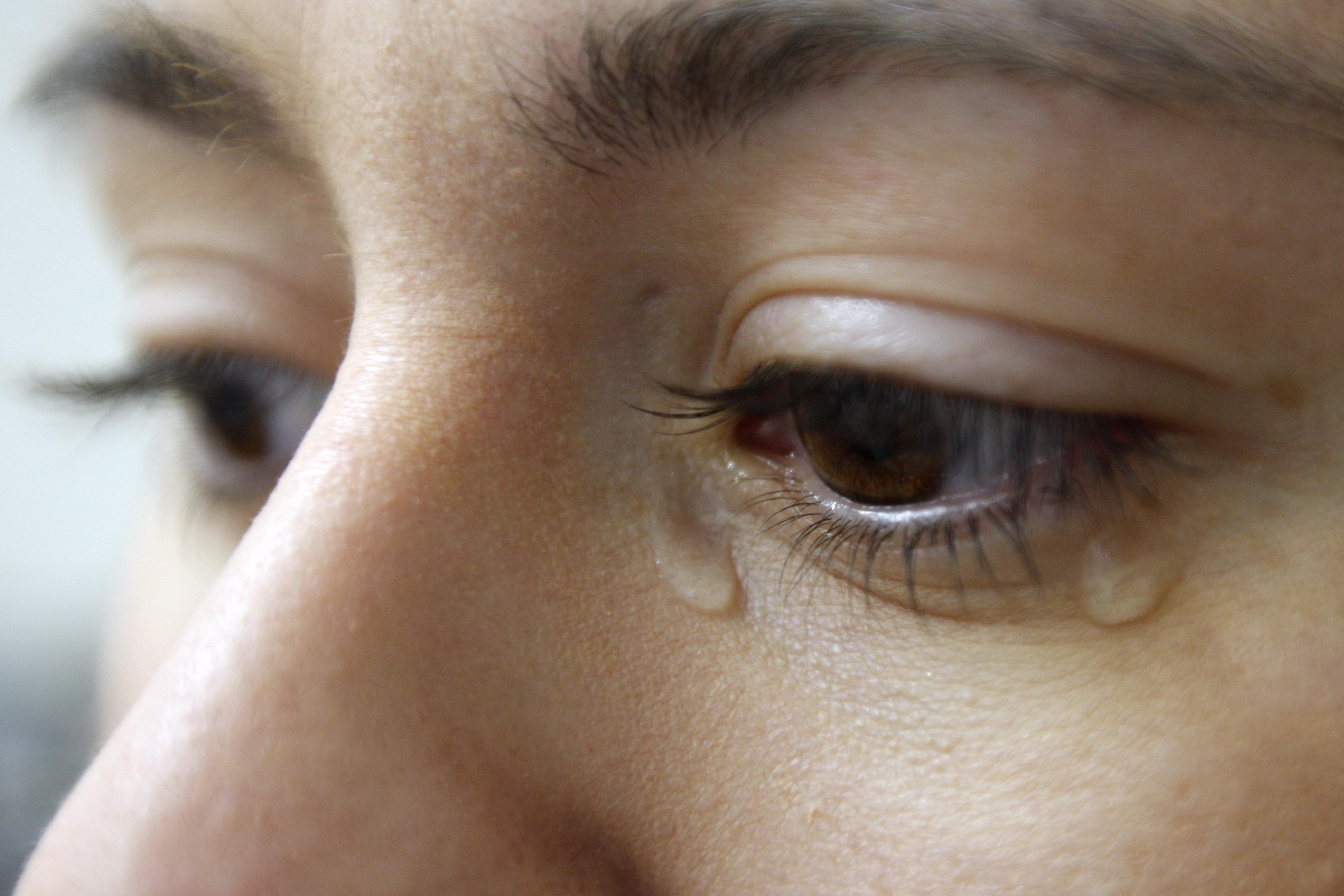|
Suffer The Children (song)
"Suffer the Children" is the debut single by the British band Tears for Fears. Written and sung by Roland Orzabal and released in October 1981, it was the band's first release, recorded shortly after the break-up of Orzabal and Curt Smith's previous band Graduate. The original single was produced by David Lord and recorded at his own facility, Crescent Studios in Bath, England. The song would eventually be re-recorded for inclusion on Tears for Fears' debut LP ''The Hurting'' (1983), this time produced by Chris Hughes and Ross Cullum. Origins and production Along with "Pale Shelter", "Suffer the Children" was one of two demo songs that landed Tears for Fears their first record deal with Phonogram in 1981. According to Orzabal: The song was later re-recorded by producers Chris Hughes and Ross Cullum for inclusion on the band's debut album ''The Hurting'' in 1983. This recording is distinct from the original 7-inch version by the subtraction of an extra Curt Smith-sung ly ... [...More Info...] [...Related Items...] OR: [Wikipedia] [Google] [Baidu] |
Tears For Fears
Tears for Fears are an English pop rock band formed in Bath in 1981 by Curt Smith and Roland Orzabal. Founded after the dissolution of their first band, the mod-influenced Graduate, Tears for Fears were associated with the synth-pop bands of the 1980s, and attained international chart success as part of the Second British Invasion. The band's debut album, '' The Hurting'' (1983), reached number one on the UK Albums Chart, and their first three hit singles – " Mad World", "Change", and " Pale Shelter" – all reached the top five in the UK Singles Chart. Their second album, '' Songs from the Big Chair'' (1985), reached number one on the US ''Billboard'' 200, achieving multi-platinum status in both the US and the UK. The album contained two US ''Billboard'' Hot 100 number one hits: " Shout" and " Everybody Wants to Rule the World", both of which also reached the top five in the UK with the latter winning the Brit Award for Best British Single in 1986. Their belated foll ... [...More Info...] [...Related Items...] OR: [Wikipedia] [Google] [Baidu] |
Bridge (music)
In music, especially Western popular music, a bridge is a contrasting section that prepares for the return of the original material section. It adds a sense of progress within a piece of music and can be used to introduce a source of tension. In a piece in which the original material or melody is referred to as the "A" section, the bridge may be the third eight- bar phrase in a 32-bar form (the B in AABA), or may be used more loosely in verse-chorus form, or, in a compound AABA form, used as a contrast to a full AABA section. The bridge is often used to contrast with and prepare for the return of the verse and the chorus. "The b section of the popular song chorus is often called the ''bridge'' or ''release'' ", or ''boredom-breaker'', . Etymology The term is a calque from a German word for bridge, ''Steg'', used by the Meistersingers of the 15th to the 18th century to describe a transitional section in medieval bar form. The German term became widely known in 1920s Germany ... [...More Info...] [...Related Items...] OR: [Wikipedia] [Google] [Baidu] |
Song Recordings Produced By Chris Hughes (record Producer)
A song is a musical composition performed by the human voice. The voice often carries the melody (a series of distinct and fixed pitches) using patterns of sound and silence. Songs have a structure, such as the common ABA form, and are usually made of sections that are repeated or performed with variation later. A song without instruments is said to be a cappella. Written words created specifically for music, or for which music is specifically created, are called lyrics. If a pre-existing poem is set to composed music in the classical tradition, it is called an art song. Songs that are sung on repeated pitches without distinct contours and patterns that rise and fall are called chants. Songs composed in a simple style that are learned informally by ear are often referred to as folk songs. Songs composed for the mass market, designed to be sung by professional singers who sell their recordings or live shows, are called popular songs. These songs, which have broad appeal, are o ... [...More Info...] [...Related Items...] OR: [Wikipedia] [Google] [Baidu] |
Tears For Fears Songs
Tears are a clear liquid secreted by the lacrimal glands (tear gland) found in the eyes of all land mammals. Tears are made up of water, electrolytes, proteins, lipids, and mucins that form layers on the surface of eyes. The different types of tears—basal, reflex, and emotional—vary significantly in composition. The functions of tears include lubricating the eyes (basal tears), removing irritants (reflex tears), and also aiding the immune system. Tears also occur as a part of the body's natural pain response. Emotional secretion of tears may serve a biological function by excreting stress-inducing hormones built up through times of emotional distress. Tears have symbolic significance among humans. Physiology Chemical composition Tears are made up of three layers: lipid, aqueous, and mucous. Tears are composed of water, salts, antibodies, and lysozymes (antibacterial enzymes); though composition varies among different tear types. The composition of tears caused by an ... [...More Info...] [...Related Items...] OR: [Wikipedia] [Google] [Baidu] |
1981 Debut Singles
Events January * January 1 ** Greece enters the European Economic Community, predecessor of the European Union. ** Palau becomes a self-governing territory. * January 6 – A funeral service is held in West Germany for Nazi Grand Admiral Karl Doenitz following his death on December 24. * January 10 – Salvadoran Civil War: The FMLN launches its first major offensive, gaining control of most of Morazán and Chalatenango departments. * January 15 – Pope John Paul II receives a delegation led by Polish Solidarity leader Lech Wałęsa at the Vatican. * January 20 – Iran releases the 52 Americans held for 444 days, minutes after Ronald Reagan is sworn in as the 40th President of the United States, ending the Iran hostage crisis. * January 21 – The first DeLorean automobile, a stainless steel sports car with gull-wing doors, rolls off the production line in Dunmurry, Northern Ireland. * January 24 – An earthquake of magnitude in Sichuan, China, kills 150 people. Ja ... [...More Info...] [...Related Items...] OR: [Wikipedia] [Google] [Baidu] |
Orchestral Manoeuvres In The Dark
Orchestral Manoeuvres in the Dark (OMD) are an English electronic music, electronic band formed in Meols, Merseyside in 1978 by Andy McCluskey (vocals, bass guitar) and Paul Humphreys (keyboards, vocals). Regarded as pioneers of electronic music, OMD combined an Experimental music, experimental, Minimal music, minimalist ethos with pop sensibilities, becoming key figures in the emergence of synth-pop; McCluskey and Humphreys also introduced the "synth duo" format to British popular music. In the United States, the band were an early presence in the MTV-driven Second British Invasion. McCluskey and Humphreys led The Id (band), the Id, a precursor group, from 1977 to 1978 and re-recorded their track "Electricity (Orchestral Manoeuvres in the Dark song), Electricity" as OMD's debut single in 1979. Weathering an "uncool" image and a degree of hostility from music critics, the band achieved popularity throughout Europe with the 1980 List of anti-war songs, anti-war song "Enola Gay (s ... [...More Info...] [...Related Items...] OR: [Wikipedia] [Google] [Baidu] |
Songs From The Big Chair
''Songs from the Big Chair'' is the second studio album by the English pop rock band Tears for Fears, released on 25 February 1985 by Phonogram Records/Mercury Records. The follow-up to the band's successful debut album, ''The Hurting'' (1983), ''Songs from the Big Chair'' was a significant departure from that album's dark, introspective synth-pop, featuring a more mainstream, guitar-based pop rock sound, sophisticated production values and diverse stylistic influences, while Roland Orzabal and Ian Stanley's lyrics displayed socially and politically conscious themes. The album peaked at number two in the UK and at number one in the U.S., becoming a multi-platinum seller in several countries and the band's most successful studio album to date. The singles "Shout (Tears for Fears song), Shout" and "Everybody Wants to Rule the World" both topped the U.S. Billboard Hot 100, ''Billboard'' Hot 100 and reached the top 5 of the UK Singles Chart, while "Head over Heels (Tears for Fears son ... [...More Info...] [...Related Items...] OR: [Wikipedia] [Google] [Baidu] |
Peter Powell (disc Jockey)
Peter James Barnard-Powell (born 24 March 1951) is an English former disc jockey, popular on BBC Radio 1 in the late 1970s and 1980s, as well as a television presenter for the BBC music chart programme ''Top of the Pops''. He has also had a second career in talent management. Early career Powell was educated at Uppingham School, a boys' independent school in Rutland in the English Midlands. Powell began his broadcasting career as the first voice on air when BBC Radio Birmingham launched in 1970, and then had a brief spell on BBC Radio 1 in 1972. He then went to Radio Luxembourg before rejoining Radio 1 in 1977. Almost immediately after his arrival at the station he made his debut as a ''Top of the Pops'' presenter, joining Radio 1 colleagues on the roster. BBC Radio 1 career Powell began as a weekend presenter on the station, presenting a Sunday show from 10am to 1pm, before a move to Saturdays in October 1978, again from 10am to 1pm. In 1980 he took over the weekday afterno ... [...More Info...] [...Related Items...] OR: [Wikipedia] [Google] [Baidu] |



